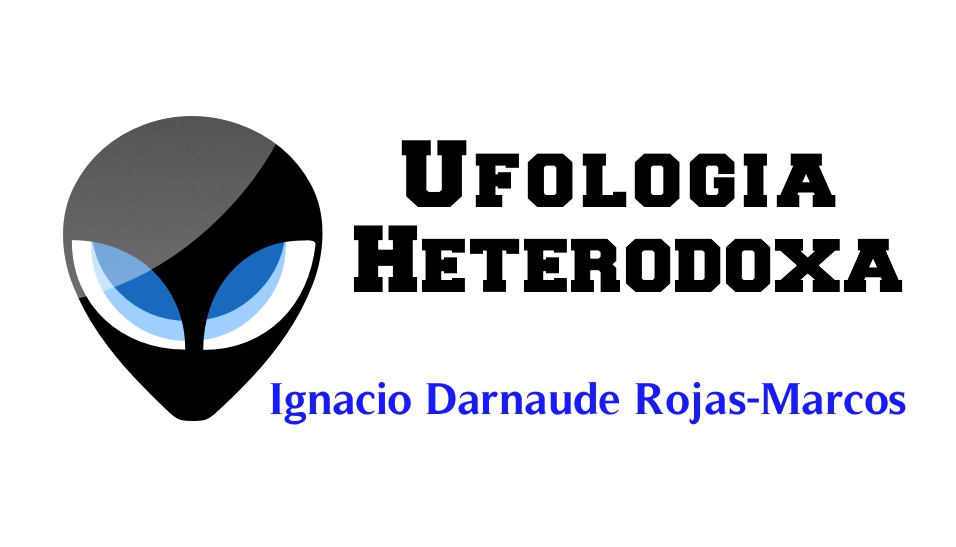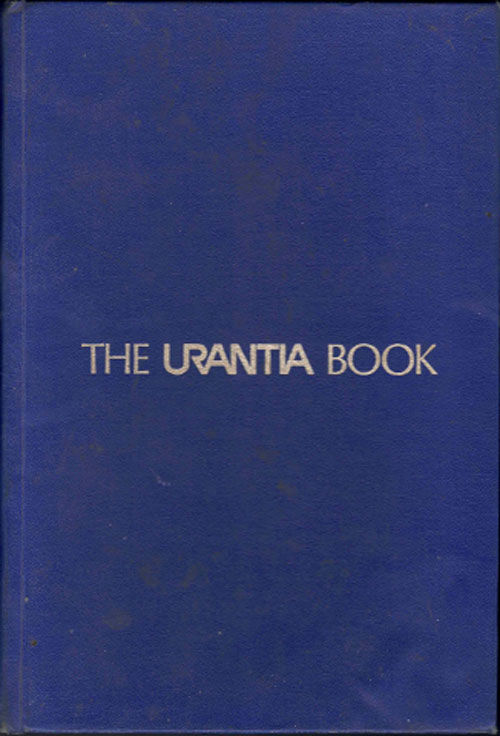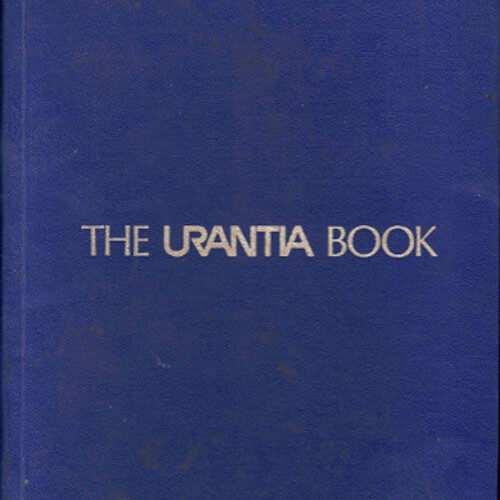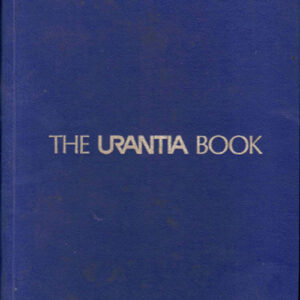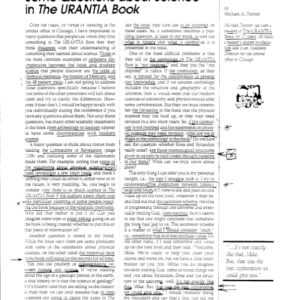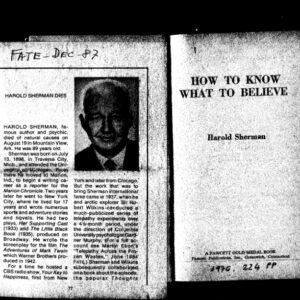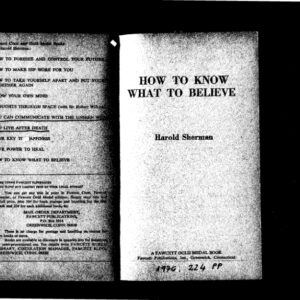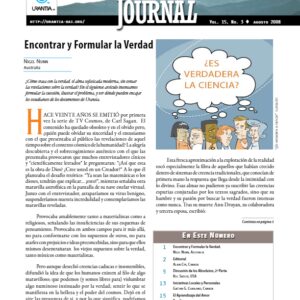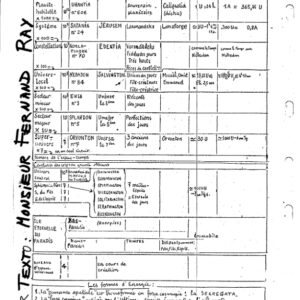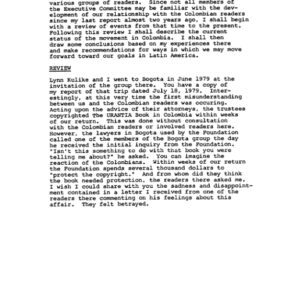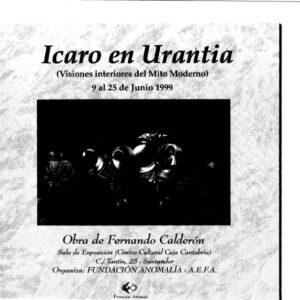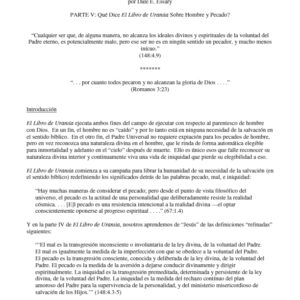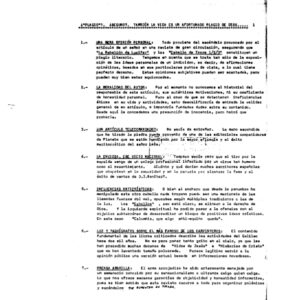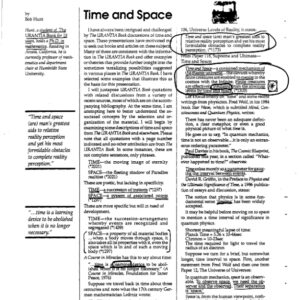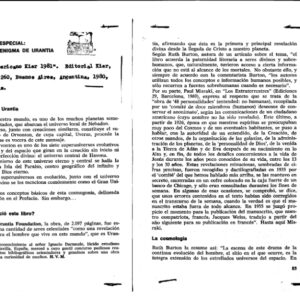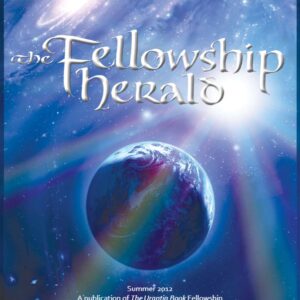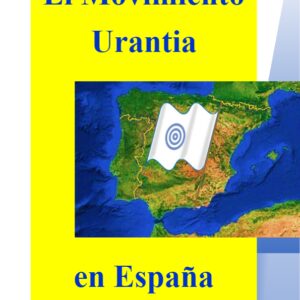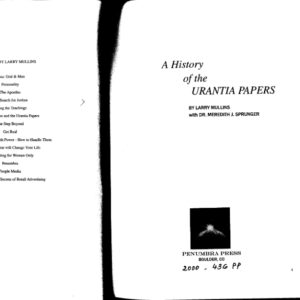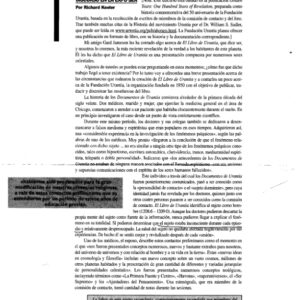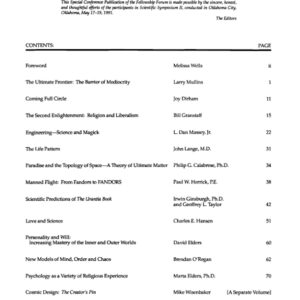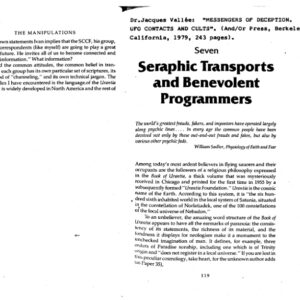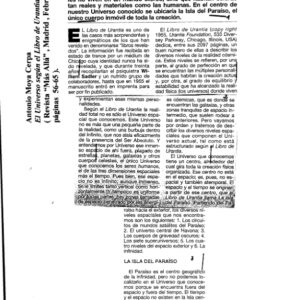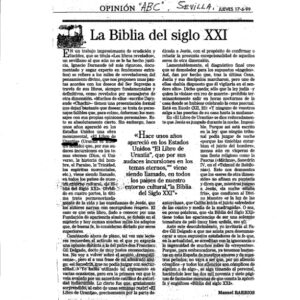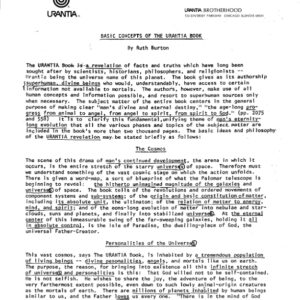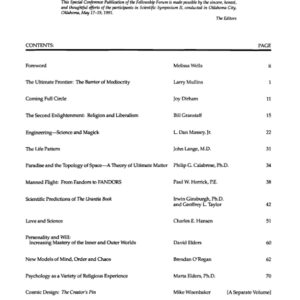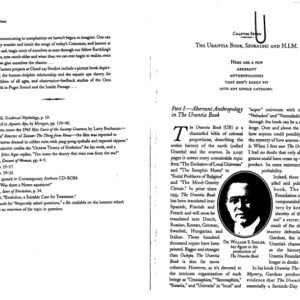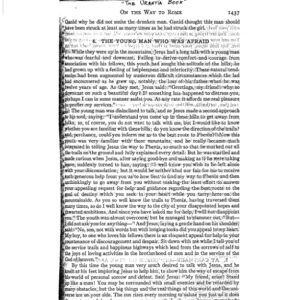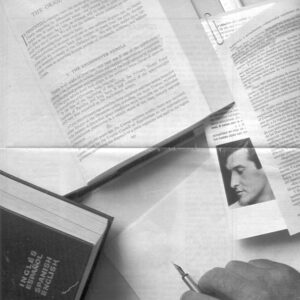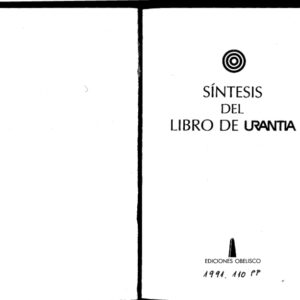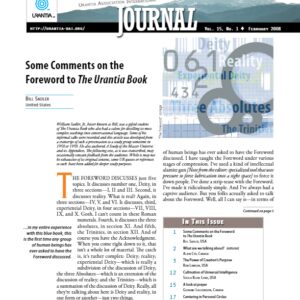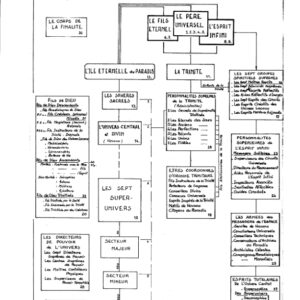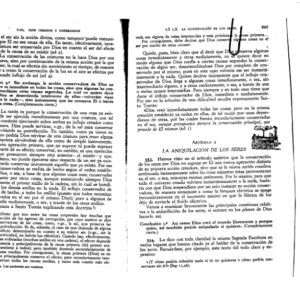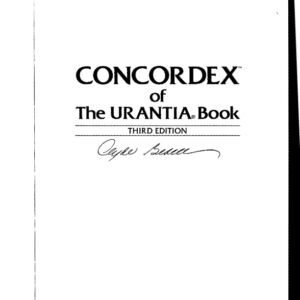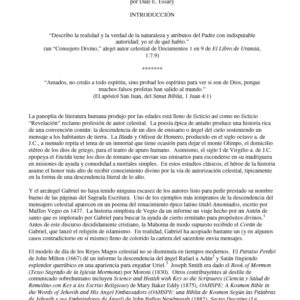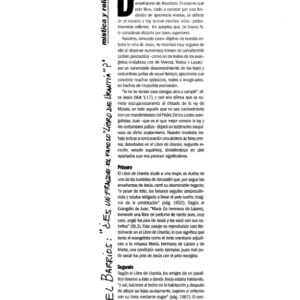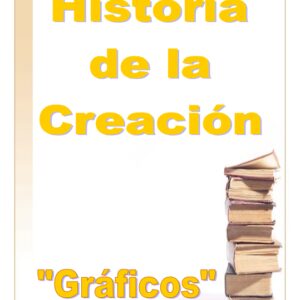Urantia Book Revelatory Limitations
- Descripción
Descripción
Urantia Book Revelatory Limitations
Denver Pearson
April 7th, 1989
Author’s note: I have written this short paper, «Revelatory Limitations», as an attempt to, (hopefully), clear up some misleading statements I have heard the past few years regarding the variances between scientific data in The URANTIA Book, and theories held by the present day scientific community.
The real catalyst for causing my pen to flow, was some statements made at the Scientific Symposium heldf at Nashville, May 1988. Although made in all sincerity, I feel that these comments have the possibility of causing a certain amount of confusion among readers unfamiliar with the world of science. Before I began writing this paper, I expressed my views to a few of these readers, and the feedback I got, suggested that some clarification was needed.
One individual said that she was bothered when other URANTIA Book readers claimed that the book was in error, now in the light of new scientific data. She was relieved when I expressed my views and suggested that I share them with more readers.
The major point of the paper is to show that the revelation is not in error, and that the revelators did not give false information to conform to the «then» current scientific views. One statement I heard, was that the revelators told us there are 48 trait determiners in the human reproductive cells, because that was the number accepted back in 1934. Now, science says there are only 46, which makes the book look in error, or outdated. The justification for this is said to be that they could not reveal what we did not know, and had to use that day’s human information, even if false. But, if this were the case, the we wouldn’t have been told that the true mass of the sun is slightly more than what the science of that day calculated it to be, page 459. Also, the theory of continental drift was not accepted at that time, but yet, we are told in the book, it is the way land masses move across the earth’s mantle; and only recently has science caught-up to the revelation on this matter.
I’m saying, here, that we in the century can finally be told whatever information we have the capability to understand, as long as we have earned it. We are even informed of things we can only remotely grasp in even a distorted form. We are no longer little children who can’t accept true facts as they really exist. We have recently taken some very important steps out of the primitive cave of ignorance, and as coming-out reward, we have been presented with the 5th epochal revelation.
I welcome any comments on the following ideas. I’m also open to receiving corrections and clarifications. Feel free to make copies.
Revelatory Limitations I was shocked, to say the least, the first time I head «The URANTIA Book has errors». After many years of detailed study of this magnificent book, I can’t honestly recall anytime when I felt any of the concepts contradicted themselves; when I felt that I was being told something that was untrue. Where, then, are these «errors»?We know there have been a few typographical errors, and minor word corrections, and we are also informed in several places, that the revelator’s concepts are subject to distortion by limitations of human language, and by the comprehension level of the mortal mind. The typos and word changes don’t affect the soundness of the revelation, and are almost expected with anything touched by human hands. The distortions referred to are to be found in sections of the book regarding very high spiritual concepts, and in areas discussing aspects of the spiritual realm, of which humans know nothing; such as the activities of the celestial artisans. Although distorted, these concepts are very helpful in enabling us to catch a glimpse of the magnitude of our Father’s eternal realities.
But, we are not talking about typos and distortions. These are not the problem. The source of the controversy seems to be in the discussion of the natural sciences, in areas where The URANTIA Book and modern theories diverge. The readers that are entertaining the notion of errors are backing it up with a section of the book called «The Limitations of Revelation», on page 1,109-10, the so-called «disclaimer»..
First, let’s look at the line that probably started the whole question regarding errors. On line 15, we read that the future students of this book wil be tempted to discard the truth, because they discover errors on the face of the associated cosmologies. Good prediction. Some students are, even now, tempted. Maybe we can put a stop to the temptation if we read this page a little more carefully, and try to fully understand what it is saying to us.
Are the revelators saying they made some errors that these students are going to discover? I think not. On line 42, they say they are reducing confusion by the authoritative elimination of error. Why create mistakes, while trying to eliminate them? That’s defeating your objective. What these students will find, are points that they only perceive as errors. What then are these so-called errors?
The first errors that these students will discover, are the discrepancies between what science claims is a fact regarding the natural sciences, and what The URANTIA Book states. We have numerous examples of this, such as the 48 vs 46 trait determiners, (which has now been resolved), the big bang theory, and the expanding universe vs. a created and orderly universe, etc. These are immediate and obvious differences, but really cannot be called errors.
For one reason, if we know our science well, and study the revelation very carefully, we see that there are no real differences between actually proven facts, (this would exclude a lot of theories). And, for another reason, science, with its so-called facts and theories, is constantly changing its data as new discoveries are being made; as well as not agreeing with itself. For instance, not all astronomers accept the big bang theory, and not all anthropologists agree with the Leakeys, when they take the age of humans back more than a million years.
Don’t get me wrong. I think science is wonderful and correct, or very near the truth, much of the time; but all too often, it changes its mind. I have a policy of taking science with a grain of salt, and basically accepting what it claims, as long as it makes enough sense, and is in harmony with the truth contained in The URANTIA Book. I don’t get so upset, then, when new and conflicting discoveries are made in science, because my sense of total reality is not entirely based on it.
The second type of error being referred to, and probably more accurately, is the error of omission. Something is being left out, not revealed. We are given many indications of this as follows: Line 12-14, «…the impartation of unearned or premature knowledge»; line 20, «…not at liberty to anticipate the scientific discoveries of a thousand years»; line 28, «…we are forbidden to include such humanly undiscovered facts»; and line 43:2, «…the cor-ordination of known or about-to-be-known facts and observations.
We might also consider the use of the word «limited», several times, which implies a controlled amount. Here is a simple example of an omission that would be seen as an error by future students of this revelation. Let’s say that a certain phenomenon, call it XYZ, has, in reality, five basic components, of which scientists are very well aware of four. They have discovered these four basic properties, and accept the fact, for the time being, that there are only four, and understand how they work to make up the physcial phenomenon XYZ.
Now, let’s jump up to Uversa, where the revelators are being given instructions concerning what they can and cannot reveal. They are told that they can discuss XYZ and its four known properties, because humans are aware of them. Furthermore, they can correct any errors, co-ordinate known facts, fill in vital missing gaps in earned knowledge, and they can also present it in a manner that will illuminate the spiritual realm, when possible; but UNDER NO CIRCUMSTANCES are they to talk about the fifth and unknown component in phenomenon XYZ. Not that scientists couldn’t understand it, or use it, but because «human wisdom must evolve». Can you imagine the frustration in working for the Ancients of Days as a revelator? You can somewhat sense this frustration on page 1,109.
Now, let’s zoom to the future, when new students are investigating the fifth epochal revelation. These students of the future know about phenomenon XYZ, and even consider it simple, trite, or even obsolete. They also know about the fifth component in XYZ, so imagine their amazement when they are reading along in this beautiful revlelation, soaking-up genuine religious truth, and suddenly come across the passage explaining XYZ?; and, of course, its four then-known properties. Count them. Four. What is this? A misprint? Is it a human mistake, or did the revelators goof-up? Now is the time when they are tempted to toss out the genuine relgious truth of the book, the book itself, and the revelators as well. But, you know what? The Mechizedek who wrote page 1,109, had their number. He states clearly that he and his fellows were «very rigorously limited by the instructions of our superiors», (line 19). He also states, on line 30, and 39-40, that «…the cosmology of these revelations is not inspired.» This is important;but what does it mean? There has been some confusion caused by this line, mainly due to not clearly understanding what might be meant by the word «cosmology», and also by the word «inspired».
Webster tells us that inspired means to comunicate to an agent supernaturally, to influence, move, or guide by divine, or supernatural inspiration, (inspiration is defined as the act or power of moving the intellect or emotions), Cosmology is defined a…: 1. A branch of metaphysics that deals with the universe as an orderly system; and… 2. A branch of astronomy that deals with the origin, structure, and space-time relationships of the universe. I might add that this would include everything that mankind is aware of, from the smallest particle of matter, to the giant galaxies that we now observe in the far reaches of outer space.
In other words, cosmology deals in facts; it is something tht is evolutionarily discovered and investigated, even by celestial personalities, and even has value; whereas, something inspired comes from a very high divine source, such as the Thought Adjuster, or Spirit of Truth, and reveals, or testifies, to the values in truth.
Now, is where a little thinking comes in handy. Cosmology is man’s study and understanding of what he perceives in his known universe. Only a few hundred years ago, our cosmology was that of a world that was flat, and was the center of the universe. The stars were holes in the roof of a light filled heaven, beyond which the gods dwelled. The cosmology of man changes with each era. We get closer and closer to understanding fully, the world around us, but we are limited to our five senses, plus any mechanical aids we have on hand. Scientists cannot very well validate a theory, unless they have physical evidence with which to back it up. There are energies that mortals are unaware of, so we’re told, (p.325) Likewise, science knows nothing of Paradise, Haovna, architectural worlds, or outer space levels, alternately rotating. It will never know of architectual worlds, because they cannot be seen in space. (p.520)
This is my point. Cosmology, as far as mankind is concerned, does not include mansion worlds, unknown energies, etc.; just as man’s study of biology does not include Spornagia. We can’t study something we don’t know exists. The cosmology that is being co-ordinated, restored, and corrected in The URANTIA Book, is the mistake riddled cosmology of human beings, not the cosmology of the revelators. We who believe this revelation now, have an expanded cosmology, but one based on faith, not fact. When we are told details about the mansion worlds, for instance, we are being told the truth, and not a distortion of the truth, in order for us to comprehend it. Agreed, it is a very simple version, but still, nothing less than what is revealed.
From our resurrection day forward, we will never see anything less than what has been described to us. Just the fact that we, in this generation, have been given a somewhat detailed account of universe functions, shows that we have evolved to a point where we can undertand and believe them. Let’s give ourselves some credit where credit is due. Even a hundred years ago, this information we have in our hands, would have been beyond mankind’s understanding.
I’ve heard someone say, «But look on page 1,110:#5. They present cosmic data in such a manner…». This doesn’t mean distorting information or making errors, does it? There are hundreds of examples of «…presenting cosmic data in such a manner as to illuminate…». One example is on page 479, called NATURAL PHILOSOPHY. The revelators are relating all physical phenomena to their spiritual sources; tying reality together. The URANTIA Book is the only source of information on the planet that does this type of thing; at least in a logical way.
One more thing, on page 1,109 needs attention; and that is the statement starting on line 23, which states: «These facts and truths will stand on the future records, but the statements regarding the physical sciences will stand in need of revision in consequence of additional scientific developments, and new discoveries. Also, relating to this subject, we have a statement about obsolete ideas regarding the material worlds found on page 1,119:#2. When more and more new discoveries are made in the natural sciences, when science itself actually begins filling in the missing gaps, such as the missing part of phenomenon XYZ, then will those parts of The URANTIA Book be outdated. It will stand in need of revision, yes. But, this does not mean we will be getting a new scientifically updated version. Standing in need may simply imply a statement of fact, and not an implication of a future event. It also implies incompleteness, not incorrectness.
I feel that the main reasons some URANTIA Book readers are having difficulty dealing with the possible inerrancy of this revelation, are due to peer pressure, and not wanting to be caught with their religious pants down. They have been confronted by their scientifically-oriented friends concerning the apparent silliness and gullibility of their faith in the outlandish cosmology of the book.
They have been intellectually insulted. What a blow to take, and none harder to defend. How many times must they hear: «Do you really believe this stuff?», before they start to have doubts, and start looking for a way to defend themselves. This is where Page 1,109 has given them a way out; a disclaimer. «You see», they can say, «I know that there are distortions and errors in the book; you can’t call me gullible.» Now, all the bases are covered. They can continue to read and believe The URANTIA BOok, and still feel comfortable in front of scientifically-minded friends.
Even now, after many years of mortal scrutiny of The URANTIA Book for typos, conceptual inconsistencies, and even scientific errors, we stil find it hard to believe that such a perfectly unified and truthful text could exist on a world of contradictions. The revelators were limited because we are limited. But, limitations are in no way errors, even if they cause unavoidable distortions. We accept much of the revelation on faith; but do we accept the truth of this revelation is based on whether or not it agrees with known scientific fact; or do we accept the scientific data as correct, because of its logical soundness; and the high spiritual truth that accompanies it? In recognizing and acknowledging the flawlessness of this gift to our planet, we come under the threat from others, as well as from ourselves, of being classified as fundamentalists. So, be called what we may, let us not back down from criticism, but rather stand firm in our convictions about this admittedly incomplete, but nonetheless, supernally truthful revelation of scientific and cosmologic facts, philosophy, and spiritual wisdom: This fifth epochal revelation, THE URANTIA PAPERS.
The Urantia Book Fellowship
